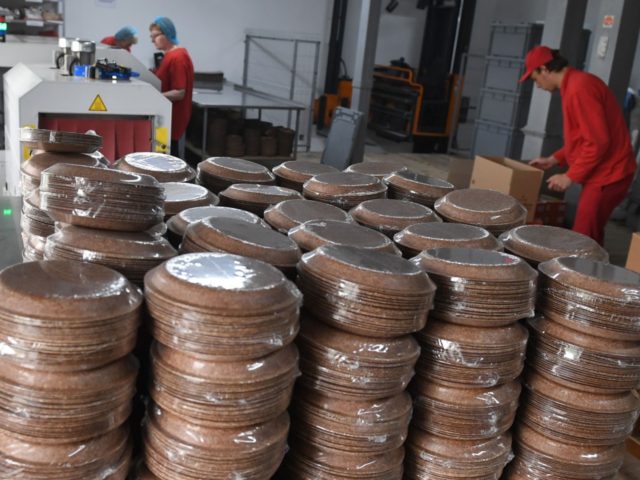A study finds molded fiber bowls touted as the “ecological savior” in take-out restaurant chains and salad bars contain potentially hazardous chemicals that do not biodegrade naturally and, thus, make compost more toxic.
“Testing by The New Food Economy reveals an industry secret,” writes Joe Fassler, features editor. “All fiber bowls contain PFAS [per- and polyfluoroalkyl substances], a troubling class of chemicals with no known half-life, even when they’re certified compostable.”
As the report observes, the fiber bowls are popular at chains such as Chipotle, Sweetgreen, and are “the biggest culinary star of the past five years,” though they bear a dark secret of the environmental responsibility movement that suggests closer investigation of that movement is warranted.
Sweetgreen, in particular, the author notes, has advertised its take-out containers are “100% compostable”:
all our takeout bowls, utensils, straws, and napkins are 100% compostable!
— sweetgreen (@sweetgreen) June 7, 2017
“While this messaging suggests that Sweetgreen’s bowls dissipate quickly and harmlessly into the environment, the very opposite is true,” Fassler states. “PFAS are colloquially called “forever chemicals” for a reason. You might only handle your salad bowl for five minutes, but the chemicals inside it, as far as we know, will stick around for countless generations.”
Fassler explains items tagged as environment-friendly may be overlooked when it comes to the long-range health of humans:
If molded fiber bowls have become a kind of status symbol in the restaurant world, conferring a fuzzy sense of corporate, social, and environmental responsibility onto the companies that use them, it’s probably because they’ve been positioned as an antidote to the industry’s alarming take-out waste problem. Many varieties are explicitly pitched to food-service buyers as compostable, certified by third-party assessors like the Biodegradable Products Institute (BPI). Unlike styrofoam clamshells or wax-lined soup cups, fiber products feel like they’d turn into mush on a leaf pile. They seem to offer convenience without the karmic debt, a way to eat that leaves no trace.
But these products, for reasons that have slipped under the radar until recently, are instead contributing to a growing environmental crisis.
Experts say all molded fiber bowls contain the potentially hazardous PFAS that are not biodegradable, thus making compost possibly even more toxic than with the materials that are unpopular with the environmentally responsible crowd. The PFAS, they say, “never break down. Not in five years, and not in 500.”
In its study, the New Food Economy tested fiber bowls from 14 locations of 8 different New York City restaurants. Researchers found all the samples tested contained high levels of fluorine, which chemical experts say is indicative of treatment with PFAS compounds, the substances that allow the fiber bowls to hold hot and greasy foods.
According to Fassler, the worst PFAS chemicals have been linked to “a range of serious health outcomes, from colitis and thyroid disorders to kidney and testicular cancers.” While these are mostly being removed from production in the United States, newer fiber bowls likely contain other varieties of toxic substances that could be linked to serious health issues, but simply have not been studied.
He observes the take-out industry began to look for substitutes for styrofoam clamshells in 2013, when New York City banned single-use foam products and dozens of other cities followed in its path.
According to the study, Whole Foods, which regularly boasts about its certified compostable packaging, was “the worst offender,” with PFAS detected in five of 17 items tested.
Whole Foods has since pledged to remove PFAS from its packaging, the report notes.
Molded fiber is “a feel-good product that works for the operator – less waste, halo branding, a product that makes the guest feel virtuous,” Arlene Spiegel, a food service consultant in New York City, told Fassler, who specifically points out the primary appeal of “halo branding” – advertising a “completely compostable” container which, actually, is not, to people eager to feel “virtuous” and environmentally conscious.
“The suggestion that these products biodegrade turns out to be deeply misleading,” Fassler writes.

COMMENTS
Please let us know if you're having issues with commenting.